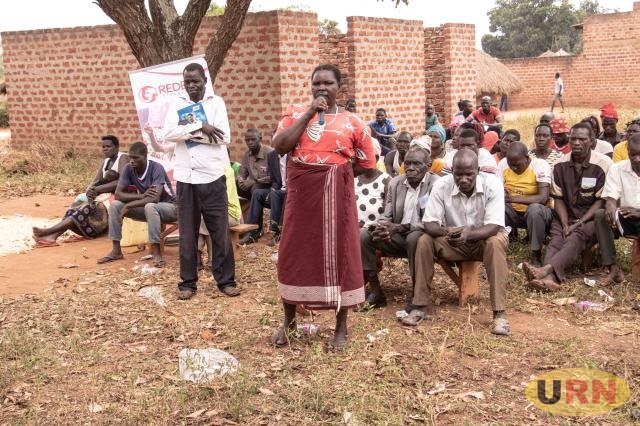
Kole, Uganda | THE INDEPENDENT | Widows in Lango have accused Cultural leaders in Lango of mismanaging land disputes. They say the leaders have tended to side with individuals seeking to dispossess them of customary land.
The widows sounded the alarm during a meeting held in Ayer sub-county in Kole District. They said while the leaders are expected to help resolve disputes over customary land, a majority of them have become key perpetrators in grabbing and selling of land.
During the meeting, two clan leaders admitted to receiving “compensation” after the sale of customary land. Vincent Ebwoga confirmed that their standard percentage compensation is 50 percent from any sale of land while Tony Okot cited one percent as their standard rate, something which the locals denied.
However, Patrick Abal, the Awitong (clan head) of the Arak-Ongoda clan believes that generalizing all clan leaders as perpetrators of this crime was unfair saying in other clans, the leaders are working tirelessly to protect the widow’s right to land.
He further explained that the Lango Cultural Foundation has set guidelines on how customary land should be managed. He adds that the clan constitution is clear as far as management of customary land is.
Abal also blamed some widows for orchestrating such claims against their clan leaders especially when they are stopped from selling the land for dubious reasons.
In 2021 Rose Atim’s husband Franco Okabo died, leaving her with nine biological children.However, she was denied access to land at Te-Opok trading center, Ayer sub-county in Kole district.
Godfrey Odongo, the Community Liaison Officer at Kole Central Police Station believes that the token given to clan leaders after officiating the sale of land is promoting land disputes.
He attributed the increasing number of children living on the streets in urban centers to land disputes at home which leaves them with no other means of survival.
However, Atim’s case has attracted the attention of Redeem International, an NGO working with law enforcement authorities to protect widows and orphans from violent abuse and exploitation resulting from Land disputes, offering free legal services to victims.
The perpetrator in Atim’s case was arrested and charged in court although he was later granted bail.
Jane Acola, the Community Liaison Officer at Redeem explains that their office has registered several such cases against clan leaders who should be protecting the people.
She said Redeem is embarking on a campaign to empower the cultural leaders with knowledge on the need to protect widows’ and orphans’ right to land.
A 2011 study conducted by the Land and Equity Movement in Uganda (LEMU) estimates that 70 percent of widows in the Lango sub-region and 90 percent of unmarried and divorced women are victims of land grabbing.
*******
URN
 The Independent Uganda: You get the Truth we Pay the Price
The Independent Uganda: You get the Truth we Pay the Price





